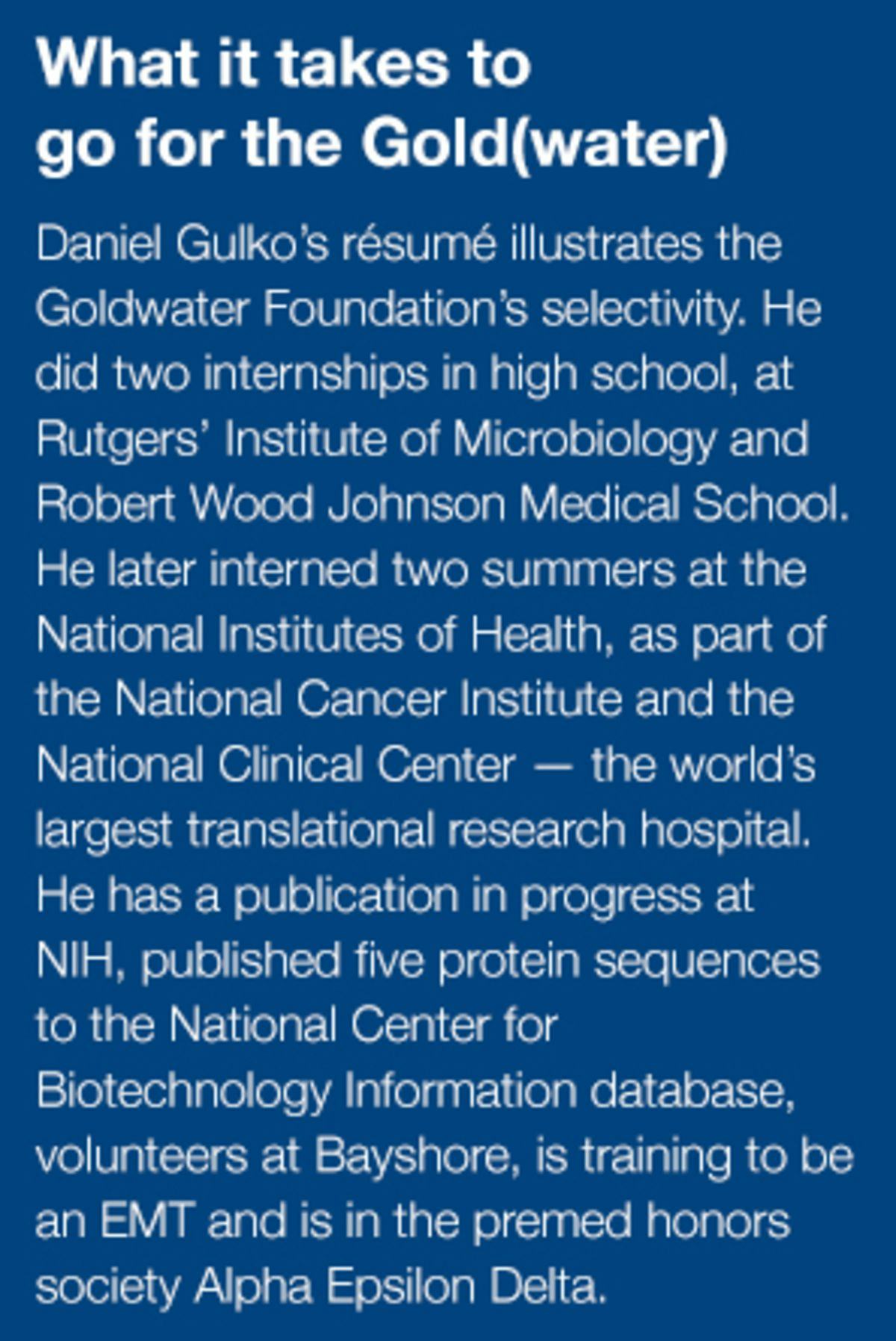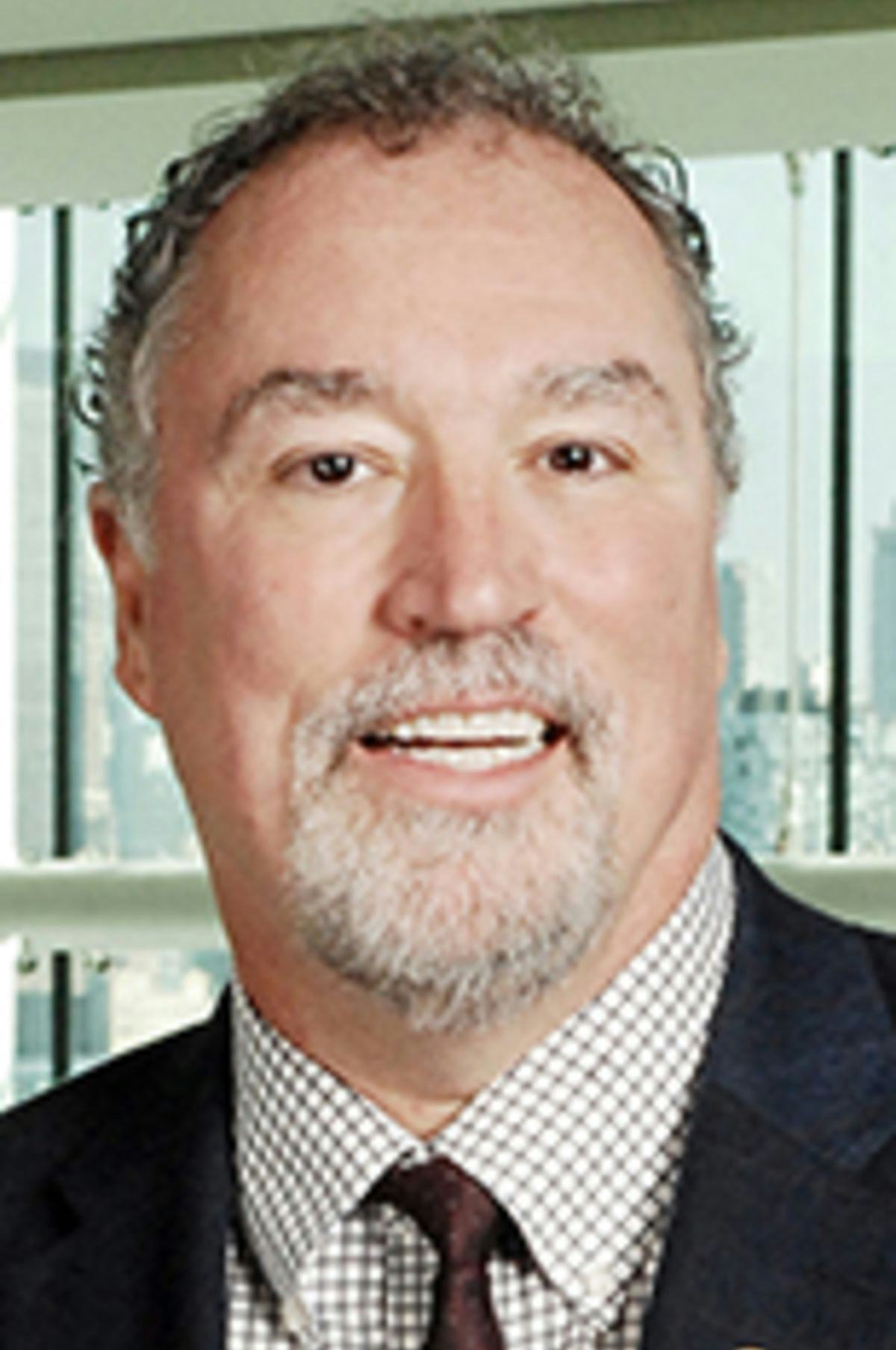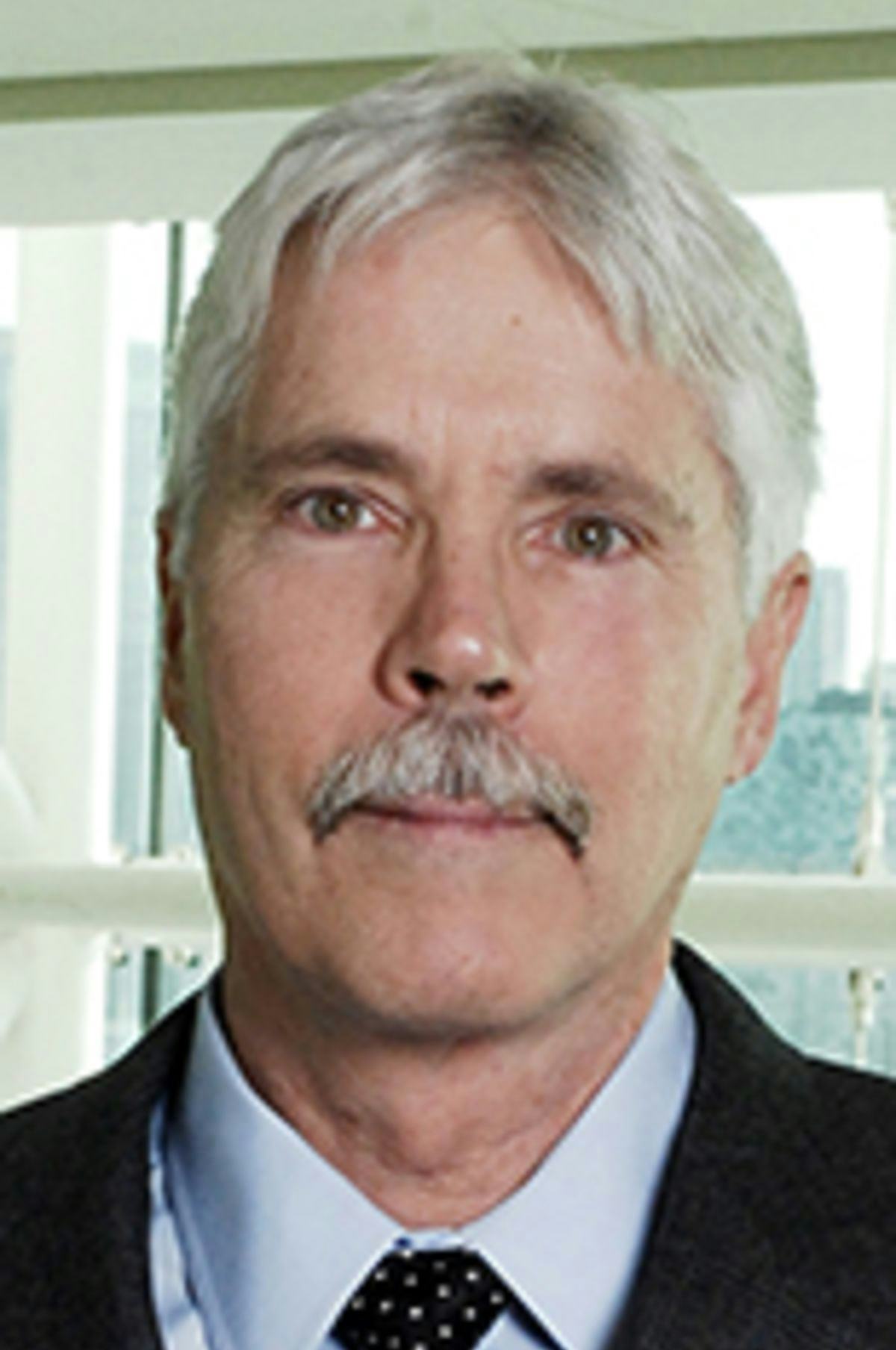Goldwater Scholarship Winner, Aspiring Oncologist Says Leadership, Analytics Focus at Stevens Offers New Perspectives on Career Success
If you’re curious why an aspiring medical doctor might want to study business at Stevens Institute of Technology, try looking close to home.
Daniel Gulko ’21 has watched his hometown hospital become a fixture in mergers in the last decade. In 2010, Bayshore Community Hospital was acquired by Meridian Health, which went on to merge with Hackensack University Health Network just a few years later.
“Hospital mergers are very much a microeconomics topic — you have two hospitals, they’re business enterprises and they need to understand the underlying financials as much as they do the medicine,” Gulko said. “I’m learning a lot about economics, finance, accounting and analytics — a set of skills that will help me not only when it comes to running a private practice, but in leadership and managing relationships.”
First Goldwater Scholar for business school
In April, Gulko won a highly competitive Goldwater Scholarship, the first Stevens business student to do so. The Goldwater Scholarship is considered the nation’s highest honor for undergrads studying math, science or engineering; in the program’s 30-year history, only four other Stevens students have won this distinction.
Gulko has an internship this summer that will challenge both what he's learned about business and science. He'll be working at RWJ Barnabas Health System’s Monmouth Medical Center, where he’ll work with the leadership of its Southern Campus in creating a strategic plan to help the hospital better partner with the community. The hospital’s emergency department has long waiting times that Gulko said are a medical and business problem.
“One of the largest problems they have is the patients keep coming back for conditions like diabetes that may not be emergencies,” Gulko said. “If the doctor is not sensitive to the patient’s needs, you wind up with repeat visits that cause long wait times. And so, the purpose of business isn’t just money; it’s about optimizing your resources, your processes, and your sensitivity to the patient’s desires. That way, you ascertain you can spend more time with patients and ensure they get, and understand, the right treatment.”
That perspective puts him in rare company, said Dr. Don Lombardi, principal investigator on a Nicholson Foundation grant that’s exploring how safety-net hospitals can reduce staff attrition and improve patient experiences through innovative educational programs and strategic initiatives. Gulko’s internship is part of that grant.
“Daniel had the unique foresight to realize that the leadership model in American healthcare is evolving toward physicians becoming organizational leaders, requiring academic preparation in both the sciences and management,” Dr. Lombardi said. “And with his formidable thirst for knowledge and purposeful dedication to all he is doing at the School of Business, he has planned his work and now is working his plan at a truly peerless level.”
Gulko is pursuing a graduate certificate in Healthcare Management and Leadership alongside his Business & Technology major and a minor in Biology, as he is a pre-medicine student.
Value of an analytics focus
“I really like the analytics focus of the Business & Technology major,” Gulko said. “I applied a lot of data analytics to the research I did during my summers with NIH, and the business lens at Stevens puts a lot of emphasis on how you can manage through data and how it can shape your decision-making process.”
He also mentioned fundamental economics courses with Dr. Richard Anderson, whose classes emphasize applied learning; Gulko said Dr. Anderson often used healthcare examples to illustrate core business concepts.
“Stevens elucidated the power of business and its applications to healthcare, from teaching how to do a SWOT analysis to how to create a strategic plan,” he said.
Gulko’s principal career interest is oncology; long term, he sees himself working in clinical trials or another area that allows him to not only do research but apply it in meaningful ways that help patients. In the near term, he said, his business studies will give him insights and a multidisciplinary perspective most doctors may not have upon finishing medical school.
“Many doctors many not know how to run a private practice, or optimize their financials and expenses,” Gulko said. “Beyond that, business school gives you a humanistic outlook, and teaches you to relate to people and understand the needs of a market.
“Stevens really provided me with that eye-opener of seeing those two perspectives together — medicine and business — and understanding how that combination gives you a more insightful view into how you transition your hospital to be at the forefront of a changing healthcare landscape.”
School of Business Undergraduate business majors Business career success





